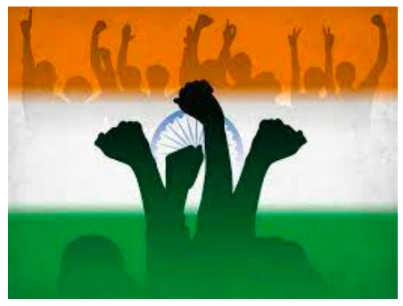Answer:
Approach:
- Introduction: Begin by highlighting the issue of representation deficit in Indian democracy, emphasizing the imbalance between the number of elected representatives and the large population.
- Body:
- Discuss the current scenario of representation in India compared to other democracies, focusing on the challenges due to large constituencies.
- Outline the consequences of this deficit, such as inadequate local issue resolution and weaker accountability mechanisms.
- Propose solutions like increasing the number of representatives, strengthening local governance bodies, adopting a Proportional Representation system, and using technology for better connectivity.
- Cite examples like Kerala’s decentralized model and the Digital India initiative to illustrate effective measures in enhancing representation.
- Conclusion: Conclude by reinforcing the need for a multifaceted approach to address the representation deficit, ensuring that India’s democratic framework evolves to better represent and cater to its diverse and growing population.
|
Introduction:
Indian democracy, often celebrated for its extensive and diverse electoral landscape, faces a critical challenge: a representation deficit. This issue arises from the disproportionate ratio of elected representatives to the burgeoning population. With a population exceeding 1.3 billion, the average Indian Member of Parliament (MP) represents a significantly larger constituency compared to their counterparts in other democracies.
Body:
Analysis of the Representation Deficit:
- In India, one MP represents over 1.5 million citizens, a stark contrast to countries like the UK and the USA, where MPs/Representatives cater to much smaller populations.
- This vast representation not only dilutes the quality of representation but also hampers the MPs’ ability to address local issues effectively.
- For example, constituencies like Thane in Maharashtra, which is one of the most populous, depict the challenges in addressing diverse local issues due to the sheer number of constituents.
Challenges Posed by the Deficit:
- The representation deficit leads to inadequate attention to local issues, weaker accountability mechanisms, and a strain on the resources and accessibility of representatives.
- Recent issues like farmers’ protests and regional environmental concerns have highlighted the gaps in local representation and the need for more localized governance.
Suggested Measures to Enhance Representation:

- Increasing the Number of Representatives: Revisiting the freeze on the expansion of Lok Sabha and Rajya Sabha seats, imposed until 2026, can be a starting point. This would entail increasing the number of parliamentary seats to better reflect the current population.
- Strengthening Local Governance Bodies: Empowering local governance institutions like Panchayati Raj Institutions (PRIs) and Urban Local Bodies (ULBs) with more resources and decision-making powers can decentralize governance and enhance representation at the grassroots level.
- Adopting a Proportional Representation System: Exploring electoral reforms such as the Proportional Representation system could ensure a more equitable representation of various social and political groups.
- Leveraging Technology for Better Connectivity: Utilizing digital platforms for greater interaction between elected representatives and citizens can bridge the gap created by physical distances and large constituencies.
A few examples of successful decentralization:
- The success of Kerala’s decentralized governance model, where local bodies have significant autonomy and resources, illustrates the benefits of enhancing representation at lower levels of governance.
- The effective use of technology in governance, as seen in the Digital India initiative, indicates the potential for improved representative-citizen engagement through digital platforms.
Conclusion:
The representation deficit in Indian democracy is a pressing issue that necessitates immediate attention. Addressing it requires a multipronged approach, including revising parliamentary seat allocations, empowering local governance bodies, exploring electoral reforms, and leveraging technology. Such measures would not only enhance democratic representation but also strengthen the quality of governance, ensuring that the voices of India’s diverse population are heard and addressed more effectively at all levels of governance. As India continues to evolve and grow, it is imperative that its democratic structures evolve in tandem to reflect and accommodate the changing demographics and aspirations of its citizens.
To get PDF version, Please click on "Print PDF" button.


Latest Comments